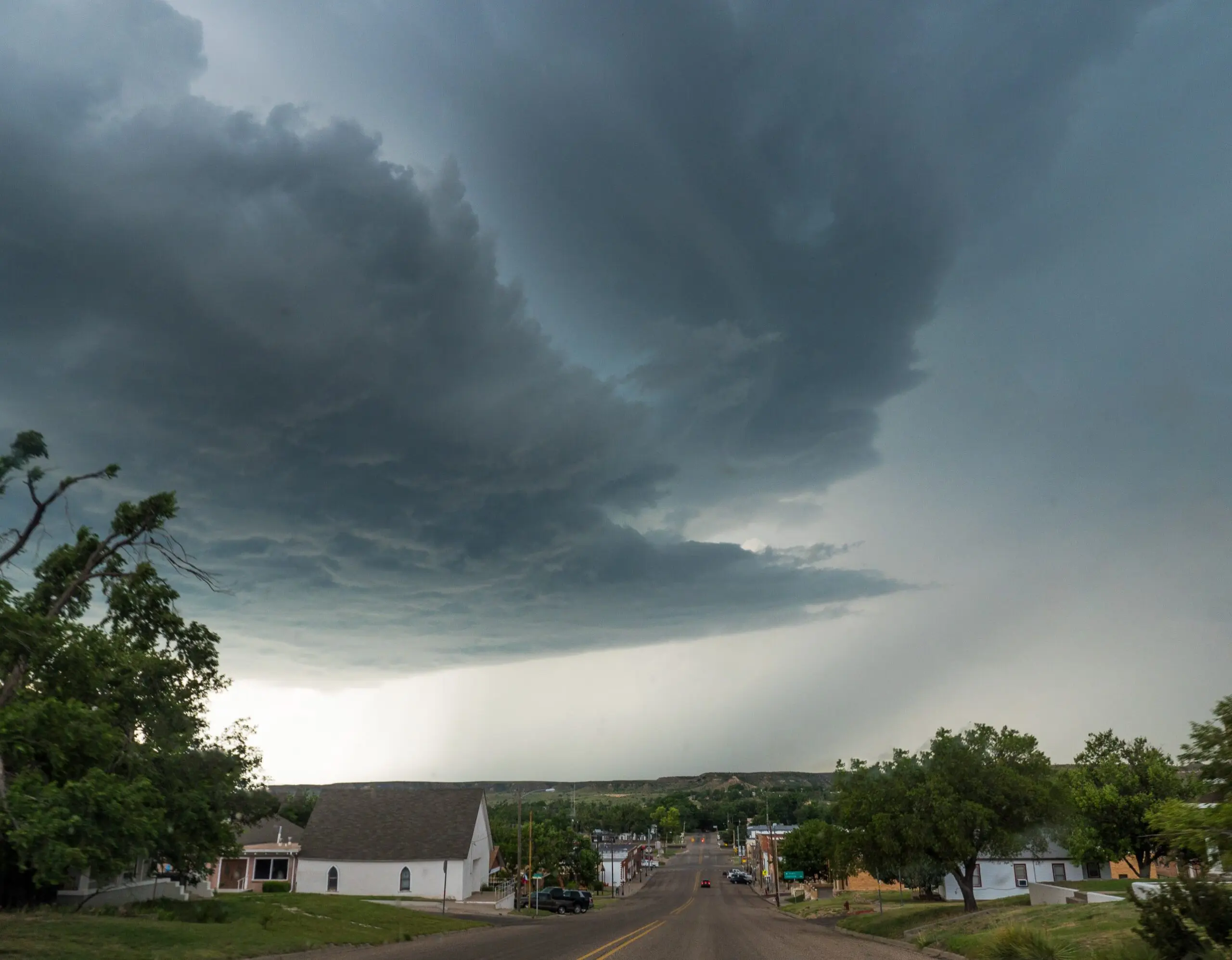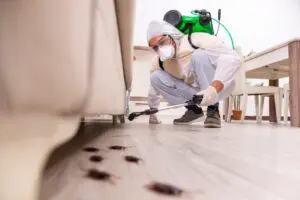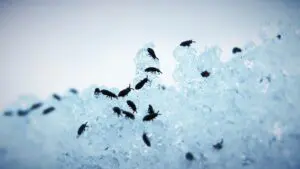

Every year, storm season rolls around and brings with it a host of inconveniences- power outages, flooding, and downed trees to name a few. But one thing many people don’t associate with storm season is an increase in pest invasions. The excess of rain drives pests out of their homes in search of dry places to live. Unfortunately for us, those dry places often end up being our homes and businesses. To help you get through this storm season pest-free, we put together a list of ways to defend your home from shelter-seeking pests.
Fortify Your Defenses
Before a storm, pests will be looking for any possible way to get into your home or business. This means that it is especially important during storm season to make sure all of your pest prevention methods are still in place. Conduct a thorough inspection both indoors and outdoors and take note of any possible entry points. Since most pests enter buildings through cracks and holes, all such openings must be sealed. Narrower cracks, like those around windows and doors, can be sealed with a silicone-based caulk. Larger holes and cracks can be plugged with steel wool. Replace any damaged shingles and weather stripping. Install chimney caps and put wire mesh over air vents. Any gaps around the holes through which pipes and utility lines enter the home should also be sealed or plugged. Keep tree branches and shrubs trimmed away from the exterior of your building, and keep all firewood and debris piles a good distance from outer walls.
Eliminate Attractants
In addition to exclusion techniques, you should also remove as many pest attractants as possible, starting outdoors. Make sure gutters are clean and free of all debris. Any pest breeding grounds- i.e. standing water, mulch, debris piles- should either be eliminated or moved away from outer walls. Turn outdoor lights off when possible. Keep outdoor garbage cans away from the building, and be sure they all have tight-fitting lids.
Indoors, try to eliminate as much clutter as possible. Of course, this is much easier said than done, so any clutter that cannot be eliminated should be kept in plastic containers rather than cardboard boxes. Keep all food, including pet food, in airtight containers, and clean up spills and crumbs right away. Clean regularly in areas where food residue or moisture may build up over time. Some such areas include underneath and behind appliances and sinks. Vacuum regularly, and sweep up spider webs as soon as you find them. Fix any clogged or leaky pipes to avoid water damage.
Remove Standing Water
It seems like a big storm should wipe out mosquito populations, but unfortunately they do the opposite, providing countless new breeding grounds to the pests. Mosquitoes need standing water in which to lay their eggs, so avoiding water accumulation from a storm is key to preventing a mosquito infestation. Dispose of cans, buckets, ceramic pots, and other similar containers that hold water, or relocate them to a place where they cannot collect water. Make sure your outdoor recycling containers have drainage holes in the bottom. Flip over wheelbarrows and wading pools when they are not in use, and empty bird baths each night. Aerate ornamental pools or stock them with fish to help prevent mosquitoes from taking a liking to them. Regularly clean and chlorinate swimming pools, and remove any water that may collect on pool covers. Mosquitoes only need about a half inch of water to breed, so even small accumulations of water should be removed.
Get Rid of Spoiled Food
One of the worst parts about storm season is the power outages. If the power is out for too long, refrigerated or frozen foods start to go bad and pretty soon flies start to move in. Flies are quite accomplished at spreading diseases and pathogens, so needless to say, fly infestations should be avoided at all costs. Put all spoiled food into trash bags and tie them up. Be sure to tie them tightly so they are fully sealed. If possible, keep the bags outside and away from the building until trash day.
Address Water Damage
Joining power outages on “The Worst Parts about Storms” list is, of course, water damage. It’s unsightly, it can compromise structural integrity, and worst of all, water damaged wood can attract termites and carpenter ants. To avoid invasions from these wood-chewing pests, identify any areas with water damage and repair them. Then, fix all plumbing and roof leaks to avoid further damage. Using dehumidifiers in damp spaces like basements will also help to minimize moisture buildup.
Address Waterlogged Outdoor Areas
Underground pests like ants cannot live in soil that is saturated with water. This means that too much rain can cause them to seek higher ground and subsequently move into your home or business. Remove rotting debris from your yard, and make sure outdoor faucets and pipes are not leaking. If possible, position your home or business on a high point of your property so the yard slopes away from the foundation. Try to level out any dips and divots in your yard as well.
Contact Excel for a Free Inspection
We know there’s only so many preventative steps you can take, so if you’re experiencing a pest problem in your home or business, storm-related or otherwise, give us a call and we’ll send one of our experienced technicians your way for a free inspection. You have enough to worry about this storm season- let us handle the pests.






